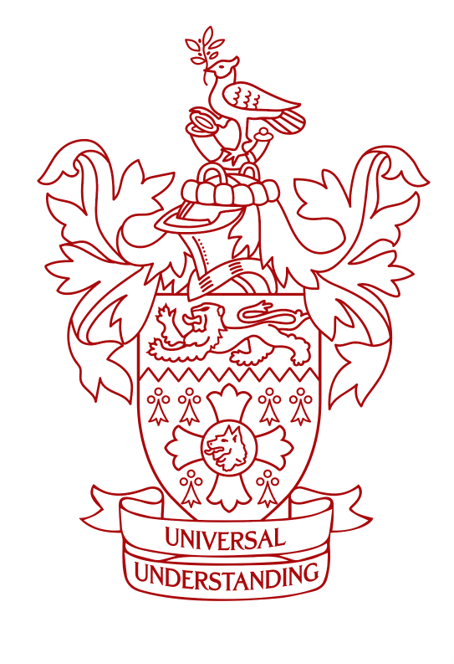The CIOL Online Conference was held on 20 March 2025 via GoTo Webinar - a video of the event is available here for attendees
Speakers
Gwenydd Jones MCIL CL - Freelance translator, editor and writer
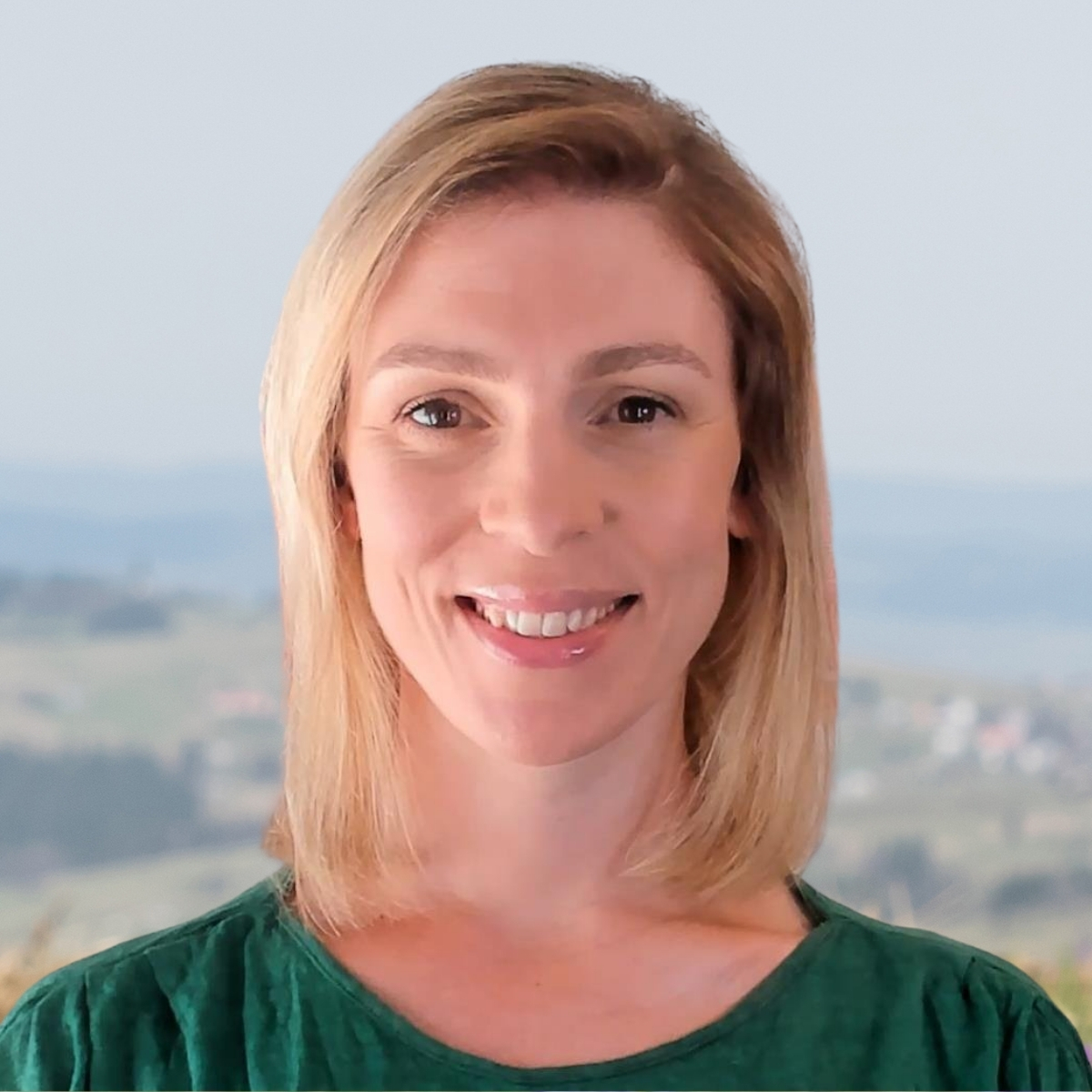 Gwenydd Jones is a freelance translator, editor and writer. She holds the DipTrans, an MA in translation studies and an MA in legal translation.
Gwenydd Jones is a freelance translator, editor and writer. She holds the DipTrans, an MA in translation studies and an MA in legal translation.
Gwen's training company, The Translator’s Studio, specialises in teaching the art of translation and helping translators prepare for the CIOL CertTrans and DipTrans exams.
You can follow her on LinkedIn and visit her YouTube channel.
Michael Lynas - Duolingo: using AI to support the future of language learning
 Michael Lynas is UK Country Director for Duolingo the world's most popular language learning app and the company behind the innovative Duolingo English Test. Michael will be joined by Dr Audrey Kittredge and Dr Sharon Wilkinson.
Michael Lynas is UK Country Director for Duolingo the world's most popular language learning app and the company behind the innovative Duolingo English Test. Michael will be joined by Dr Audrey Kittredge and Dr Sharon Wilkinson.
An experienced policy leader with track record of founding and growing impactful new ventures. Michael founded the National Citizen Service Trust, delivering an ambitious public policy idea by creating a new national institution enshrined in legislation and by Royal Charter that has created billions of pounds of social value by supporting 600,000 young people - building bridges across social divides and ladders to opportunity.
He has also worked for international management consultants Bain & Co and for UK Government as a Senior Policy Adviser at 10 Downing Street.
Ibrahim Kadouni - Ethics in interpreting: Professional standards and real-world challenges
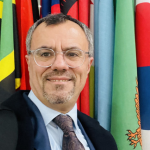 Ibrahim Kadouni is an experienced Arabic conference and broadcast interpreter, translator and interpreter trainer who collaborates with international organisations and think tanks, providing high-level interpreting services. Ibrahim has translated three books and currently serves as an associate tutor of interpreting at the University of Surrey.
Ibrahim Kadouni is an experienced Arabic conference and broadcast interpreter, translator and interpreter trainer who collaborates with international organisations and think tanks, providing high-level interpreting services. Ibrahim has translated three books and currently serves as an associate tutor of interpreting at the University of Surrey.
You can follow him on LinkedIn.
In this presentation, Ibrahim will highlight the theoretical underpinnings of interpreting ethics as well as provide practical tools and strategies to navigate complex ethical landscapes. By integrating perspectives from both literature and practice, attendees will leave with a deeper understanding of the importance of ethics in maintaining the integrity of interpreting as a profession.
Zoe Moores - Multilingual access through respeaking
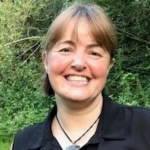 Zoe Moores is a researcher, trainer, lecturer and professional subtitler. Her doctoral research at the University of Roehampton explored how respeaking could be introduced into the live event setting in the UK to broaden the access provided for both d/Deaf, deafened and hard of hearing audience members and the wider audience, and what additional skills and training would be required for those involved. She worked closely with the charity Stagetext to co-ordinate the project. Her work on the SMART project at the University of Surrey explored the provision of multilingual access through respeaking.
Zoe Moores is a researcher, trainer, lecturer and professional subtitler. Her doctoral research at the University of Roehampton explored how respeaking could be introduced into the live event setting in the UK to broaden the access provided for both d/Deaf, deafened and hard of hearing audience members and the wider audience, and what additional skills and training would be required for those involved. She worked closely with the charity Stagetext to co-ordinate the project. Her work on the SMART project at the University of Surrey explored the provision of multilingual access through respeaking.
In her current position as Research Fellow at the University of Warwick, Zoe is part of the Action Translate team, exploring how machine-translated content can be used to support access to materials in humanitarian contexts, and during translator training. Zoe is a member of GALMA, the Galician Observatory for Media Access.
For many years, respeaking, where subtitles are created in real-time to provide live access to unscripted or semi-scripted broadcasts and events, was seen primarily as a mode of intralingual translation, but times have changed... Today, respeaking is equally understood as an interlingual form of access, as interlingual respeakers can work directly from the spoken source language into a written target language - in some ways similar to the work of interpreters, but with a different form of ultimate access provided. In addition, respeaking is increasingly found as a component within wider multilingual pathways which incorporate either multiple modalities of translation or interpreting, or language transfer in multiple directions. In this talk, we'll review key concepts related to respeaking and then explore how it can be used in different settings, and the training, knowledge and expertise which will best equip respeakers and the professionals they work with so that it can be implemented most effectively.
Paul Kaye - How developments in AI and other technology are changing translation work at the European Commission
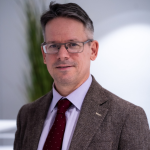 Paul Kaye of the European Commission’s Directorate-General for Translation (DGT) will discuss the AI-based tools being developed by DGT and how they are changing the work of translators and other staff at the Commission.
Paul Kaye of the European Commission’s Directorate-General for Translation (DGT) will discuss the AI-based tools being developed by DGT and how they are changing the work of translators and other staff at the Commission.
Paul Kaye is an English translator at European Commission, turning French, Czech, Slovak, Polish, Hungarian and Estonian documents into English. Covering all policy areas but especially energy, environment, agriculture, transport, internal market, competition. Occasionally, and more slowly, Russian, Ukrainian and German. Paul is also involved in the department’s external communications work.
Chloe Stout MCIL – Audiovisual translation: What does it really mean?
 Chloe Stout MCIL is a French and Italian into English translator based in West Yorkshire. She holds an MA in Audiovisual Translation Studies from the University of Leeds and has been freelancing for the last four years.
Chloe Stout MCIL is a French and Italian into English translator based in West Yorkshire. She holds an MA in Audiovisual Translation Studies from the University of Leeds and has been freelancing for the last four years.
She mainly works in marketing, entertainment and education and loves combining her linguistic and technical capabilities in her subtitling work.You’ve probably heard the term 'audiovisual translation', or heard someone describe themself as an 'audiovisual translator', but what does that actually mean?
In this presentation, Chloe will give an overview of the vast array of services that are encompassed by 'audiovisual translation' and this might just give you some ideas of how you can expand your existing translation or interpreting services into the audiovisual space.
Norma Schifano PhD - Associate Professor in Modern Languages at the University of Birmingham
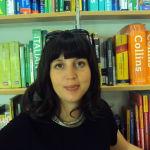 Norma Schifano is Associate Professor in Modern Languages at the University of Birmingham. She specialises in Romance comparative linguistics, with specific attention paid to linguistic minorities (specifically the Italo-Greek speakers of southern Italy), and migrant communities (specifically the Latinx population of the UK). Her research encompasses a variety of topics in formal morphosyntax, including verb movement (Verb Movement in Romance, Oxford University Press, 2018), with a particular focus placed upon the investigation of internal vs contact-induced linguistic change. Norma is also interested in ethical challenges and opportunities raised by collaborations between academics and third-sector organisations representing linguistic minorities.
Norma Schifano is Associate Professor in Modern Languages at the University of Birmingham. She specialises in Romance comparative linguistics, with specific attention paid to linguistic minorities (specifically the Italo-Greek speakers of southern Italy), and migrant communities (specifically the Latinx population of the UK). Her research encompasses a variety of topics in formal morphosyntax, including verb movement (Verb Movement in Romance, Oxford University Press, 2018), with a particular focus placed upon the investigation of internal vs contact-induced linguistic change. Norma is also interested in ethical challenges and opportunities raised by collaborations between academics and third-sector organisations representing linguistic minorities.
In her presentation Crossing Borders: What happens when languages meet, Norma explores the possible effects of language contact on the deep architecture of language. Through case studies of contact between unrelated varieties, such as Spanish with English and Italo-Romance with Greek, we will examine how contact can accelerate linguistic change and act as a catalyst for further developments, while also exploring instances where languages remain resistant to external influence in apparently surprising ways. Whether you're passionate about linguistics or curious about how languages influence one another, this talk will offer insights into the dynamics of language interaction and its implications for grammatical evolution.
CIOL Online Conference 2024 Videos are Available here


